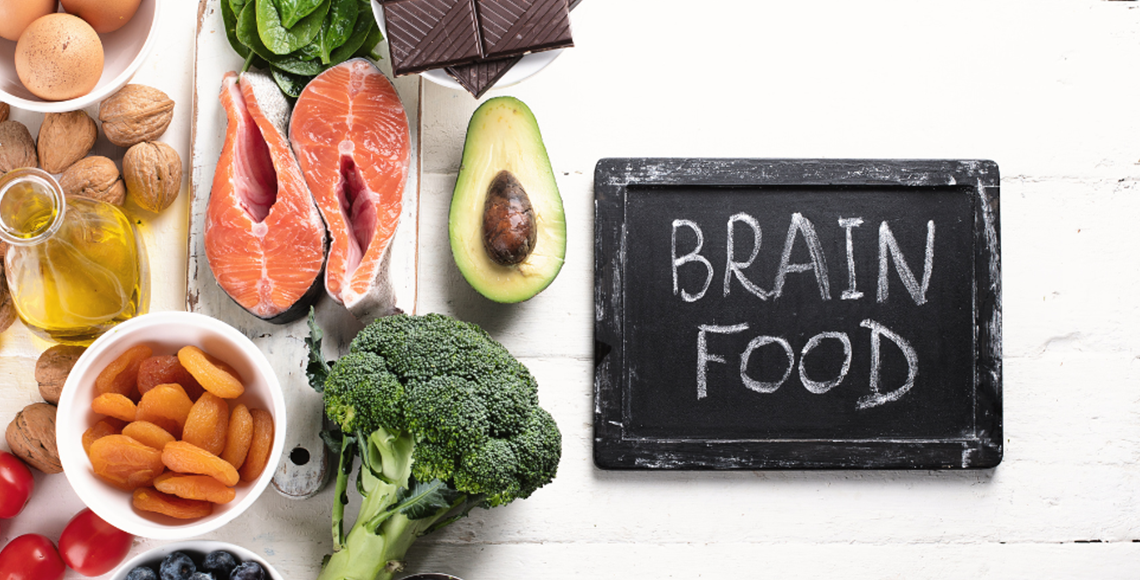Healthy Brain Food for Women
It’s been said that “you are what you eat.” Although this may not be entirely true, the foods you eat can affect your brain health, which can in turn affect your memory and behavior. That’s why it’s so important to eat healthy brain food.
According to a 2018 study, two-thirds of dementia patients are women. Women also account for 60 percent of caregivers either caring for a friend or loved one with the disease. Women in their 60s are also more than twice as likely to develop dementia than they are breast cancer. And because the early signs and symptoms of dementia are often confused with menopause, it’s important to pay attention to intuition when something doesn’t seem right. Early intervention can help with dementia prevention and management. 1
How Food can Impact Brain Health
Some research has shown that food can play a role in brain health. 2 Here are the best brain foods for dementia prevention:
Leafy Greens
Greens such as spinach, kale, broccoli, and collards are rich in nutrients that support brain health—folate, beta carotene, vitamin K, and lutein. Research shows eating a diet rich in these dark greens may help slow the development of memory problems with age. 3
Fatty fish
Much of your brain is made from fat, and half of that fat is omega-3 fatty acids. So, it should come as no surprise that eating foods rich in omega-3 fatty acids, such as salmon, tuna, mackerel, trout, herring, and sardines, can help preserve brain health. 4
Several studies have shown that eating fish rich in omega-3 fatty acids two to three times a week can help with dementia prevention. 5
Walnuts
Don’t like fish? You can get omega-3s in supplement form. Or you can eat a handful of walnuts. Walnuts are a great source not only of healthy fat, but also of protein—both of which are good for brain health. A study done at UCLA connected eating walnuts with higher scores on cognitive tests. 6
Berries
Blueberries, raspberries, strawberries, and blackberries all contain flavonoids. These compounds give berries their color, and they can help with Alzheimer’s prevention. One study done at Harvard found that women who ate at least two servings of berries a week delayed memory problems by up to two-and-a-half years. 7
Healthy gut foods
Some of the most cutting-edge research on food and Alzheimer’s prevention has been done on the microbiome. Your microbiome is the colony of trillions of micro-organisms—bacteria, fungi, viruses, and parasites—that live in your gut. 8
The newest research shows that the specific micro-organisms in your gut may affect risk for cognitive problems. To help with dementia prevention, eat foods that populate your gut with the right organisms. Prebiotic foods help create the right environment in your gut for beneficial micro-organisms to grow. Go for prebiotic foods in their raw form, such as garlic, leeks, asparagus, onions, bananas, artichokes, and seaweed. Probiotics help supply the micro-organisms themselves. These foods include yogurt with live cultures, kefir, sauerkraut, pickled vegetables, kimchi, and kombucha tea. 9
Green tea
Green tea contains several ingredients that make it a good beverage for brain health. For one, it has caffeine, which improves memory and focus. It also contains an amino acid called L-theanine, which increases a brain chemical that lowers anxiety and promotes relaxation. And the polyphenols and antioxidants in green tea help with dementia prevention and reduce the risk for Parkinson’s Disease.10
Water
Your brain is made up of 85 percent water, so it requires adequate hydration to function properly. Drinking enough water is important for maintaining energy for your workout routine, too. To keep your body and your mind working as they should, aim for four to eight cups of water a day. 11
For the best brain food, follow the Curves Nutrition Program. As a member of Curves, you can add our Nutrition & Weight Management program to your membership, which helps keep your body in tip–top shape for your full body workout. The healthy meal plan and educational series offered at Curves will help you develop healthy habits for life. During your one-on-one sessions with your Curves Coach, you can discuss foods you should eat and lifestyle changes you can make for optimal health and wellbeing.
To find out more about how you can informed lifestyle and health choices, visit our blog under the ‘Live‘ category! You can also learn more about how the ‘Curves Circuit‘ can benefit your lifestyle here.
Sources:








